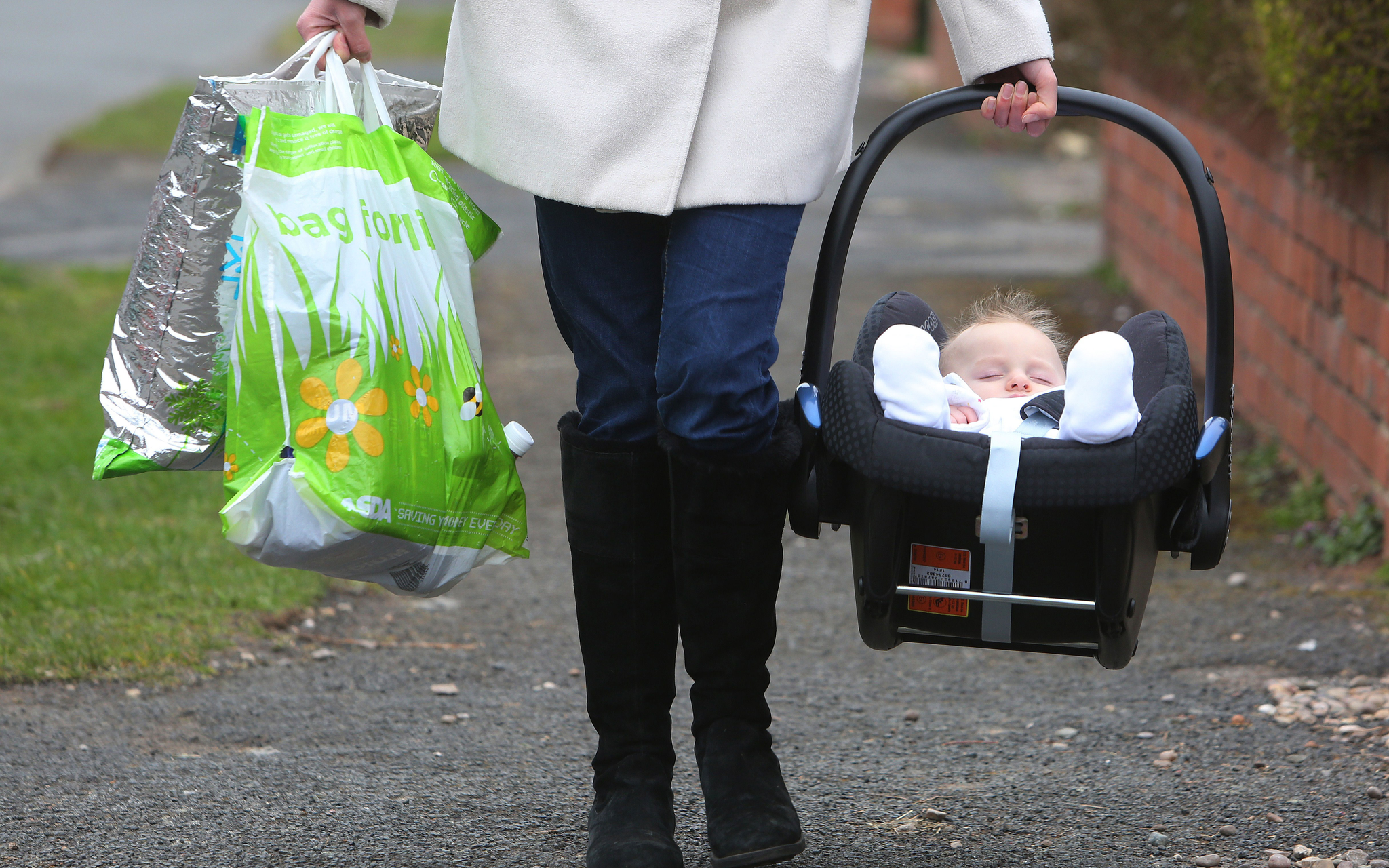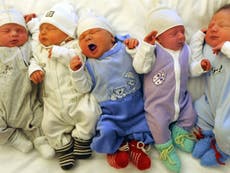Let's stop obsessively policing women's fertility and trying to measure our children's happiness
If I wanted a baby at 68, that would be my business


This summer I took an important decision – to go on holiday by train. Life’s too short to shuffle forward in airport security, decant toiletries into tiny plastic bags, sit for hours in an airless lounge staring at tarmac.
At 10am I travelled from Ashford to Paris and then on to Turin, arriving in time for dinner. The scenery was superb, and my first-class ticket from the Gare de Lyon to Turin cost £35 for a journey of 363 miles. It would have taken more than seven and a half hours by car, and cost a lot more on the plane. Although fully booked, the train was blissfully quiet.
Jeremy Corbyn has made nationalising the railways the centrepiece of his plans to turn us to the left. He says it’s what voters want. Rail travel is a hot political issue, but when politicians travel to their constituencies they’re waving free tickets at the conductor. Does David Cameron understand what it’s like to use a system in which each private operator is determined not to co-ordinate their services with another? Travellers spend hours on cheerless stations waiting for connections.
Only Lord Adonis has actually spent time travelling the network when compiling a government report on the industry. The problem is that 60 per cent of train users are commuters, and their ticket prices have risen at a far higher rate than their wages over the past decade. The other 40 per cent of train users, meanwhile, can only buy cheap tickets if they plan weeks in advance. Transport minister Claire Perry may proudly announce that you can travel from Manchester to London for £15, but if you try to book you’ll find there are none of these tickets left for the foreseeable future. I have seen bargain fares evaporate while I am online trying to purchase them – that’s how few are offered.
What if there’s a family crisis? Anyone forced to make a sudden departure by train is penalised as if they are rich. Why can’t train operators flog unsold seats at a discount, like theatre tickets, in the last 15 minutes before they leave?
There’s no evidence that nationalisation would bring fares down; we need more competition, not less. In Italy, the Italo and the Frecciarossa compete on long distance routes between major cities and prices reflect that. According to The Man in Seat Sixty-One travel website, a mine of information about travelling by train all over the world, fares in the UK are not more expensive than the continent 85 per cent of the time – it just costs far more to buy one of the 15 per cent of tickets that can be used at any time, on any train.
Instead of building a new high-speed line, the Government needs to invest in the existing system and force operators to work together, putting customers first.
My old cookbooks are as fresh as ever
Three cheers! Food writer Prue Leith has had the guts to debunk a modern myth, declaring that most new cookery books are nothing to do with cooking.
A new band of media-friendly female chefs aged under 30 who bandy words like “pure” and “raw” burst on to the scene with a fully formed philosophy about food, offering concoctions that are more like a religion than a source of simple enjoyment. The Fat Ladies would have a hard time getting a TV series these days, when appearance is everything. These new-age cookery books follow the same format: gorgeous photographs occupy a whole page, facing a recipe set in bold type that even a toddler could read. Dishes have names like “eggs with leaves” or “green grains”. They cost a lot to buy in hardback and offer relatively little useful information per pound of your cash. Leith says we can do far better by googling a recipe, then reading the comments and suggestions from other cooks who have tried it.
My whole life as a cook, from the age of 21, can be traced through the books I’ve returned to over and over again, by Marguerite Patten, Claudia Roden, Jane Grigson and Elizabeth David – books with few pictures but plenty of practical expertise and an understanding of everyday needs.
Back in the 1970s, Leith wrote a book about entertaining on a budget with sections divided into “poor” and “posh”. Keen to impress a BBC bigwig who was coming to dinner, I followed one of her special-occasion recipes avidly, taking the legs off partridges, mincing the meat and making little savoury balls to accompany my roast game. I managed to do this laborious task without a single photo or accompanying video. Luckily, I soon shook off pretentious dining and have been a competent cook ever since – one who doesn’t need a colour photo of a perfectly balanced pile of raw salad ingredients sprinkled with pomegranate seeds to inspire me.
Unhappy children? Then let’s stop comparing them
If the latest research is to be believed (The Good Childhood Report 2015), the only children more miserable than British 10 to 12-year-olds are those living in South Korea. Meanwhile, young people lucky enough to be living in Romania enjoy a relatively carefree existence.
I’m beginning to think that all this happiness testing is counter-productive. It started after David Cameron took office and announced regular polling to determine the nation’s mental wellbeing. Compiling the “happiness index”, as it became known, has cost a lot of money and contributed absolutely nothing to improving our daily lives.
Try to drive up the M1 on a Friday or around the M25 any morning and you’ll probably conclude that life in Britain is highly stressful. On the other hand you could walk through the New Forest or along Hadrian’s Wall and marvel at how uplifting the simple (and free) experience is. Of course kids at school are bullied, and feel pressured to look a certain way, but was it ever any different? As for Darlington being the happiest place in Britain (according to another survey, by a posh firm of estate agents), an hour waiting on a drafty platform at the station on a bleak January evening might persuade you otherwise. I don’t buy the trite conclusion that Northerners are happier than Southerners, either, just as it seems ludicrous to compare children in Nepal with those in Brighton.
Happiness is a mindset. Maybe our kids need reminding just how lucky they are, compared to their grandparents’ generation. Stop moaning and start finding joy in simple things.
If I wanted a baby at 68, that would be my business
Hold the front page – woman produces baby! Two new mothers made news this week, simply because of their age. In Berlin, the world’s oldest mother of quadruplets has just been allowed to take her premature babies home. Annegret Raunigk is 65 and already has 13 children aged between 44 and 10 – she became pregnant after IVF treatment in the Ukraine. My good wishes to her, and to Laura Wade-Gery, a senior executive at Marks and Spencer who has just announced she will be taking four months maternity leave for the arrival of her first child – at the age of 50. Ms Raunigk says she is strong enough to look after the new additions to her family and that she’s planning to move to a larger home in the countryside for more privacy, away from her critics.
At 68, having a baby has not been one of my lifestyle choices – like many successful women I always put my career first. But if I changed my mind, and decided to adopt or go for IVF it’s my business and certainly not worth a comment, unless it’s a note of congratulation. If science (and wealth) enables women to become mothers in later life, that’s their choice.


Join our commenting forum
Join thought-provoking conversations, follow other Independent readers and see their replies